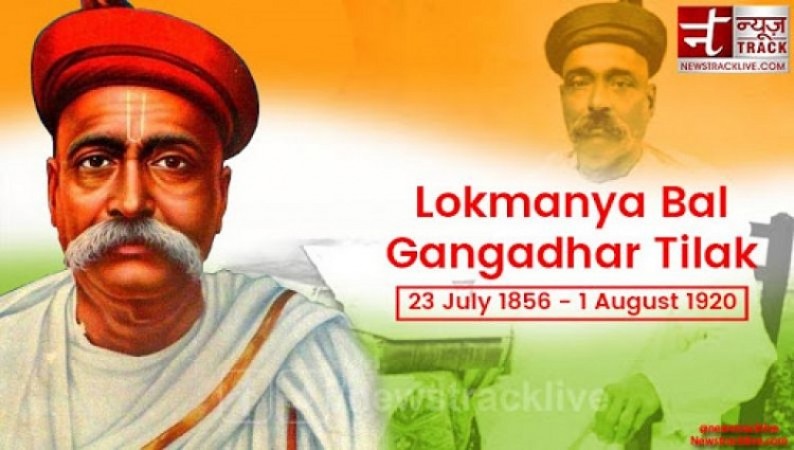
On July 23rd, we commemorate the birth anniversary of one of India's most influential freedom fighters and social reformers, Bal Gangadhar Tilak. Fondly known as "Lokmanya," Tilak played a pivotal role in the Indian independence movement and left an indelible mark on the nation's history. His commitment to nationalism, dedication to education, and advocacy for self-rule have made him a revered figure in India's struggle for freedom.
Early Life and Education: Bal Gangadhar Tilak was born on July 23, 1856, in Ratnagiri, a coastal town in present-day Maharashtra, India. From a young age, Tilak displayed an inquisitive mind and a thirst for knowledge. He received his early education in Marathi and later pursued higher studies at Deccan College in Pune. During his college years, he delved into various subjects, including mathematics, astronomy, and Sanskrit, establishing the foundation for his future scholarly pursuits.
Nationalist Ideals and Journalism: Tilak's political awakening came during the Indian national movement, when the nation was grappling with British colonial rule. He recognized the significance of preserving and nurturing India's cultural heritage and traditions to foster a sense of national unity. To promote his ideals, Tilak used the power of the pen and founded two prominent newspapers - "Kesari" (Lion) in Marathi and "The Maratha" in English.
Through these newspapers, he fearlessly criticized British policies and advocated for Swaraj (self-rule) as the ultimate goal for India's freedom. His editorials not only inspired the masses but also ignited a fervent spirit of nationalism across the country.
Promotion of Indian Festivals: Tilak understood the potential of religious festivals as a platform to unite people and create a sense of national identity. He popularized the concept of Sarvajanik Ganeshotsav, a public celebration of the Hindu festival, Ganesh Chaturthi. By organizing large-scale Ganeshotsav events, he brought people together, irrespective of their caste, class, or creed.
These festivals became a way to instill a sense of pride in India's cultural heritage and served as a means of protest against British authorities who often attempted to suppress public gatherings. Tilak used these celebrations to emphasize the need for social unity and cultural resurgence, making them an integral part of India's freedom movement.
Role in the Swadeshi Movement: Tilak played a pivotal role in the Swadeshi Movement, advocating for the use of indigenous products and boycotting British goods. He urged Indians to support Indian industries and promote self-reliance, thereby challenging the economic dominance of the British colonial powers.
Imprisonment and Legacy: Tilak's relentless pursuit of freedom and self-rule caught the attention of the British authorities, who saw him as a threat to their colonial rule. He faced several imprisonments throughout his life, enduring hardships and restrictions on his political activities. However, even behind bars, Tilak continued to inspire his fellow countrymen through his writings and unwavering spirit.
Bal Gangadhar Tilak passed away on August 1, 1920, leaving behind a legacy of courage, nationalism, and social reform. His efforts and sacrifices paved the way for subsequent generations of leaders in India's struggle for independence.
Here are some famous and popular quotes by Bal Gangadhar Tilak:
"Swaraj is my birthright, and I shall have it." Meaning: Tilak advocated for the self-rule of India, and this quote reflects his determination to achieve independence.
"Freedom is my birthright and I shall have it." Similar to the previous quote, Tilak emphasizes the right of Indians to be free from colonial rule.
"Religion and practical life are not different. To take Sanyas (renunciation) is not to abandon life. The real spirit is to make the country, your family, work together instead of working only for your own. The step beyond is to serve humanity and the next step is to serve God." Meaning: Tilak believed in the unity of practical life and spirituality, encouraging people to work for the betterment of society and the nation.
"Intellect and wisdom are the two precious gems, but it's the intellect that shines the brightest." Meaning: Tilak valued intellect and wisdom, considering intellect to be the most valuable attribute.
"Freedom is not given, it is taken." This quote reflects Tilak's belief that the people must actively strive for their freedom rather than passively waiting for it to be granted.
"The strong man is the one who is able to intercept at will the communication between the senses and the mind." This quote speaks to the strength of will and self-control that an individual can possess.
"It is the inalienable right of the Indian people, as of any other people, to have freedom and to enjoy the fruits of their toil and have the necessities of life, so that they may have full opportunities of growth. We believe that our poverty and backwardness are due to the wrong policy of the Government." Tilak highlights the right of Indians to live a dignified life and the responsibility of the government to address the issues of poverty and backwardness.
"It is our duty to make the people with whom we come into contact happy. If we are unhappy, we have no right to spread unhappiness." Tilak emphasizes the importance of spreading happiness and positivity in one's interactions with others